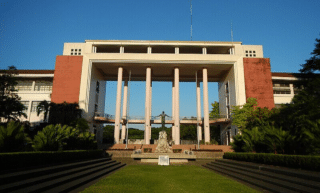Saying it is bearing the brunt of the new traffic system implemented for provincial buses entering Metro Manila, a group of operators in Cavite province is set to challenge the legality of the measure for allegedly violating the terms of the franchise granted to its members.
Ferdinand Wackay, legal counsel for United Cavite Bus Transport (UCBT), said the livelihood of the operators and drivers of buses coming from Cavite and Batangas provinces was also being undermined by the recently launched operation of the Southwest Interim Transport Terminal (SITT). (See related story below.)
“We would like to question the legality of the administrative order issued by the Land Transportation Franchising and Regulatory Board (LTFRB) amending the routes of the buses from Cavite and Batangas without a public hearing,” Wackay told reporters, adding that they were ready to go up to the Supreme Court.
The LTFRB and the Metropolitan Manila Development Authority (MMDA) formally opened the terminal on Tuesday.
Its first day of operations was marked by confusion and the lack of public utility vehicles for the thousands of passengers disembarking at the terminal, many of whom were stranded for hours.
But according to MMDA Chair Francis Tolentino, the plan to establish the SITT and two other similar terminals was announced as early as last year and was opened to public scrutiny through dialogues and consultations.
Tolentino on Wednesday said the agency remained open to complaints and suggestions on how to improve the SITT.
For example, he said, two city buses at a time could now park at the provincial bus terminal to fetch passengers coming from Cavite and Batangas. Senior citizens therefore no longer need to take a walk from the SITT to the city bus terminal just in front of the Uniwide Coastal Mall to find another ride.
But UCBT president Nes Martinez said the inconveniences suffered by commuters could not be addressed by such minor adjustments.
“In Silang, Cavite, a bus company allots one hectare to accommodate 50 buses. This 1.4-hectare terminal (SITT) which receives at least 1,000 buses needs nine hectares more,” he said.
Since the new terminal was “too small,” a long queue of buses unloading passengers on Macapagal Avenue had been causing traffic jams throughout the day, Martinez added.


